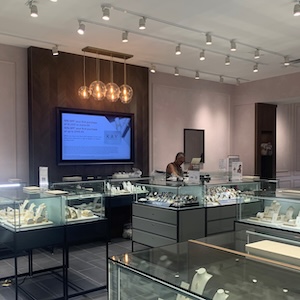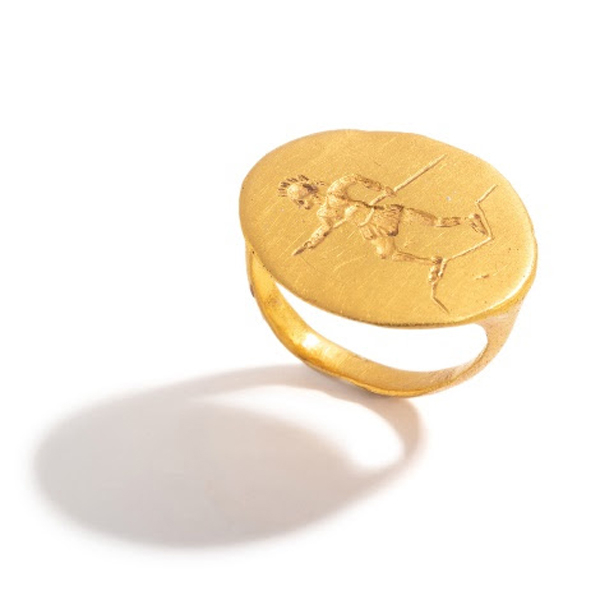
On March 21 and March 22, Hindman is hosting its inaugural Jewelry Through the Ages auction exploring jewelry’s evolution from ancient to modern times. The two-day sale features some of the world’s oldest jewels and explores how they’re still represented today. To delve deeper, JCK enlisted two experts: Hindman’s director and senior specialist of antiquities Jacob Coley, who’s overseeing the first day of the sale (Ancient to Neoclassical); and Hindman’s director and senior specialist of jewelry and watches Sally Klarr, who’s overseeing the second day (Georgian to Modern). Below, they speak to a few of the upcoming auction’s highlights.
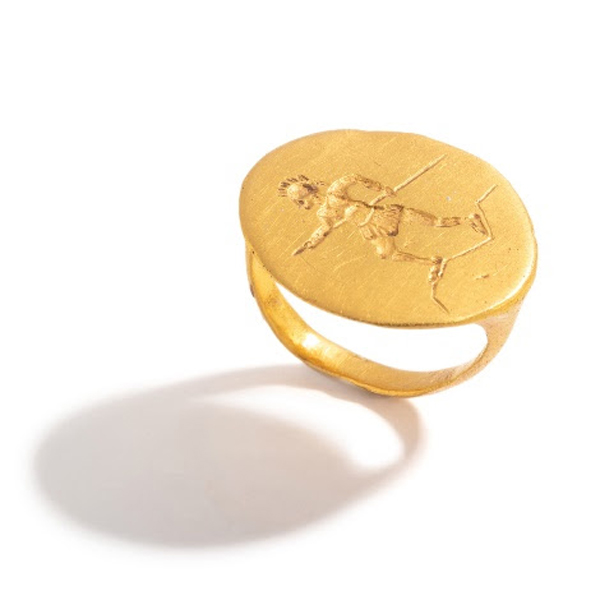
“A Greek gold finger ring comprised of nearly 98 percent gold is a true treasure,” Coley tells JCK. “Dating to the classical period, the ring is engraved with an armed hoplite, shown in full panoply. His spear is coiled back and his knees are bent as if ready to strike or brace for an impact. The tacking ground line is another unique feature of this—perhaps an artistic technique used to imply rough terrain.”
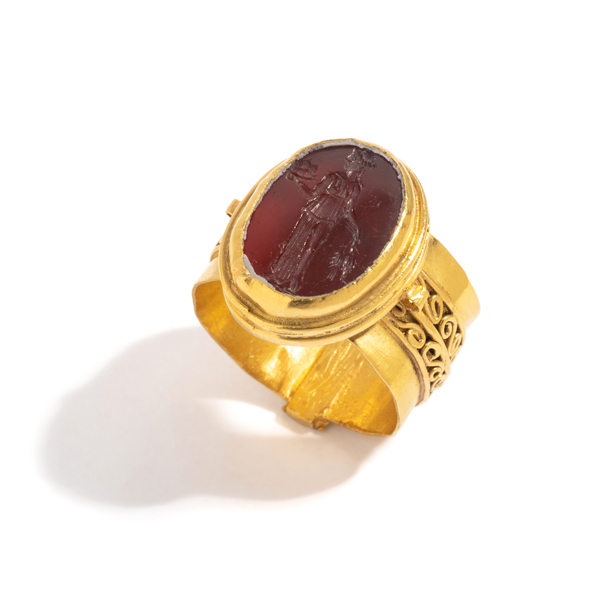
“From recent exhibitions at major museums to publications of private collections, engraved gems and finger rings from the ancient world seem to be having a real renaissance,” says Coley. “This Roman carnelian ring stone depicting Gryllos [composite figure] in the style of Athena Pallas is a whimsical example. Numerous faces are hidden throughout the goddess’s profile, almost tempting admirers to make a game of counting them.”
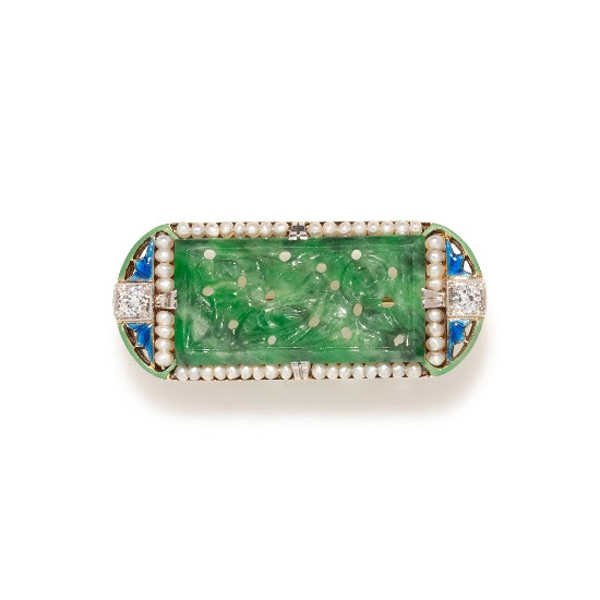
“As a lovely example of carved jade from the art deco period,” Klarr tells JCK, “this brooch is extra special due to it being signed by Bailey, Banks & Biddle—an old American jewelry firm that is no longer in existence, therefore a rarer piece for any collector.”
Photos courtesy of Hindman
Follow me on Instagram: @anniedwatson
- Subscribe to the JCK News Daily
- Subscribe to the JCK Special Report
- Follow JCK on Instagram: @jckmagazine
- Follow JCK on X: @jckmagazine
- Follow JCK on Facebook: @jckmagazine

